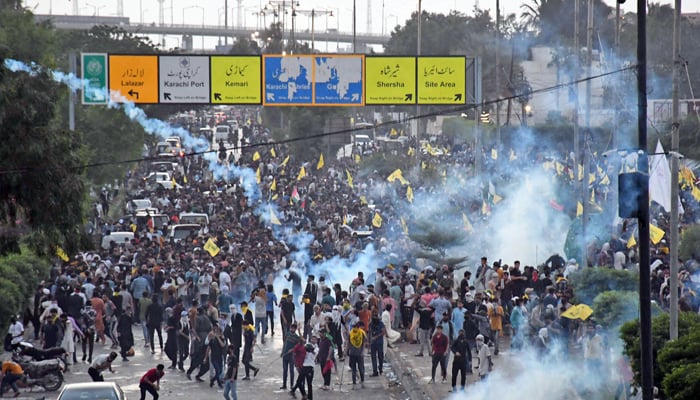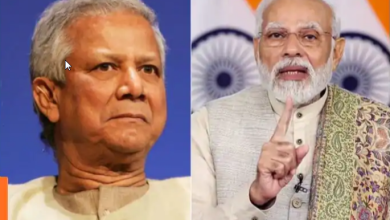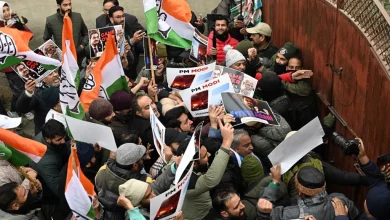UP police crackdown on protesters mourning Hassan Nasrallah’s murder
 Lucknow: The Uttar Pradesh police have filed a case against Muslim protesters in Amethi district for participating in a protest march in response to the assassination of Hezbollah chief Hassan Nasrallah in an Israeli airstrike.
Lucknow: The Uttar Pradesh police have filed a case against Muslim protesters in Amethi district for participating in a protest march in response to the assassination of Hezbollah chief Hassan Nasrallah in an Israeli airstrike.
According to Kashmir Media Service, the protest, which took place on Tuesday, was organised to express outrage and mourn the killing of Hassan Nasrallah. Protesters gathered for a candlelight vigil under the jurisdiction of the Jais police circle, carrying images of Nasrallah and chanting slogans against Israel. However, the demonstration was halted by police near Jamia Masjid, who claimed it was unauthorized and therefore illegal.
The police claimed that the protestors had not obtained prior permission. Following the protest, the police registered a case against 11 named individuals and approximately 40 unidentified participants under multiple charges. Later, the police conducted raids and arrested eight individuals from their homes.
When asked about the ongoing investigation, Ravi Kumar Singh, the Station House Officer (SHO) of Jais, confirmed that the police are reviewing video footage to identify more participants. “We have arrested eight individuals, and further arrests will be made based on the evidence,” Singh stated.
The All India Shia Personal Law Board criticised the police for targeting individuals expressing their grief and solidarity over Nasrallah’s assassination.
The All India Shia Personal Law Board condemned the police’s actions, labeling them as an unfair targeting of individuals expressing their grief and solidarity over Nasrallah’s assassination. They called on the government to immediately withdraw all cases against the protestors, arguing that such actions highlight a systemic bias against specific communities in expressing their political and emotional sentiments.
Protests in response to Hassan Nasrallah’s killing have erupted across India and in occupied Jammu and Kashmir, with thousands participating in demonstrations of solidarity for the slain leader. Critics argue that the government’s response reflects an increasing intolerance for dissent, particularly when it arises from marginalized groups.








